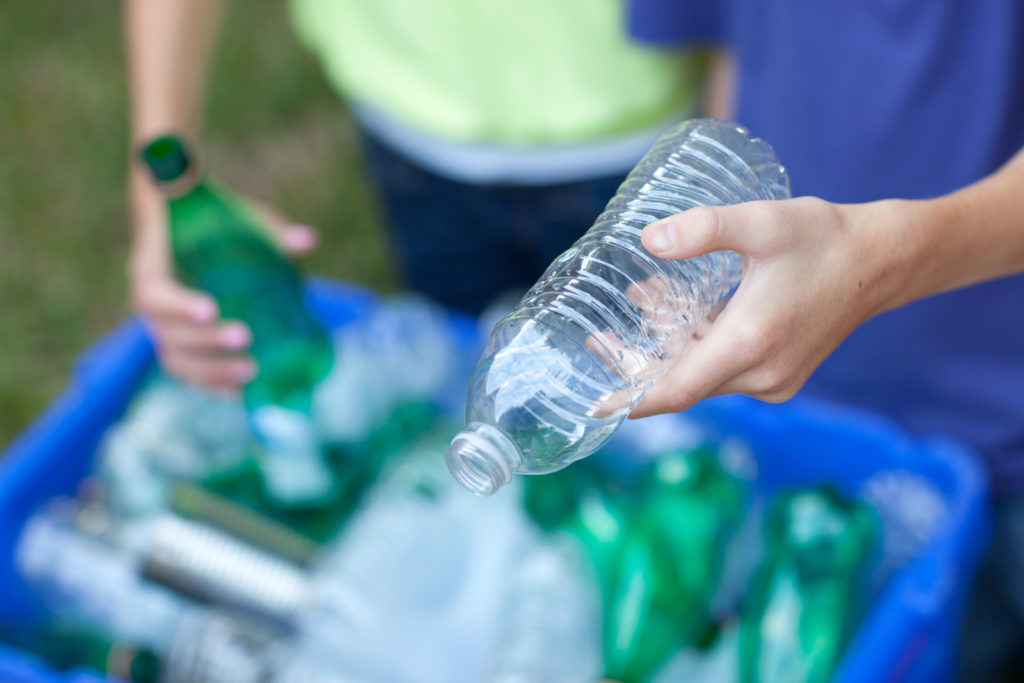The plan marks the updating of the 25 Year Environment Plan issued in 2018 (see letsrecycle.com story) which covered topics including waste and resources, air quality and nature.
Today’s revision document confirms that the new extended producer responsibility system for packaging will be introduced “from 2024”, and move the cost of dealing with household packaging waste from taxpayers and councils to the packaging producers.
And, the document restates the government’s aim of achieving a municipal recycling rate of at least 65% by 2035.
Also on the agenda is “mandatory digital waste tracking” as well as a possible ban on the sending of biodegradable waste to landfill from 2028.
Precious
Outlining current government thinking, the Environmental Improvement Plan states: “The resources on our island – indeed on our planet – are finite and precious. This is why we aim to maximise our resources and minimise our waste. The pandemic set us back in achieving this goal: household recycling fell and total waste increased as people needed new single-use products like facemasks and test kits. We need to get back to better habits, towards a truly circular and sustainable economy.”

To achieve these aims, Defra lists actions including extended producer responsibility, a deposit return scheme, consistent recycling and the banning of much single use plastics. Also planned is a look at how disposable coffee cups are made and used. And, waste arisings per person will be more closely targeted with a new set of interim targets for 2028 to reduce different types of waste, including plastic, glass, metal, paper and food.
Endorsement
The launch of the 2023 document, which builds on the Environment Plan, saw heavy endorsement from Prime Minister, Rishi Sunak and Environment Secretary, Therese Coffey.
Mr Sunak said: “Protecting our natural environment is fundamental to the health, economy and prosperity of our country. This plan provides the blueprint for how we will deliver our commitment to leave our environment in a better state than we found it, making sure we drive forward progress with renewed ambition and achieve our target of not just halting, but reversing the decline of nature.”
Dr Coffey, said: “Our Environmental Improvement Plan sets out how we will continue to improve our environment here in the UK and around the world. Nature is vital for our survival, crucial to our food security, clean air, and clean water as well as health and well-being benefits.”

Targets
The document reasons that meeting statutory targets would support a significant improvement for this component [waste and resources] of the natural environment, including:
- Reducing ‘residual’ waste (waste that is sent to landfill, put through incineration or used in energy recovery in the UK or overseas) to 287 kg per capita from 574 kg per capita in 2019
- Driving reductions across key waste material streams, including environmentally harmful materials like plastics
- Meeting statutory targets would reduce pressure from waste materials on our natural environment and decrease greenhouse gas emissions from the waste sector.
- Acting to ensure that approximately 1,200 tonnes of POPs used as flame retardants in domestic seating (for example, sofas) are destroyed by incineration when they become waste, rather than sent to landfill. This is likely to be the most significant source of release of the POP decabromodiphenyl ether (DecaBDE) to the European environment, around ten times greater in scale than any other waste stream.
Key policies to reduce our waste are shown in the chart below. They range from the deposit return scheme for drinks containers (plastic and metal) through to moving the cost of dealing with packaging waste from “taxpayers and councils to businesses”.
Dates
2050 – date for eliminating avoidable waste and doubling resource productivity
2028 – to explore options for the near elimination of biodegradable waste to landfill from 2028.
2042 – date by when to eliminate plastic waste
2042 – date by when to eliminate waste crime
2042 – date by when to halve residual waste (excluding major mineral waste)
The residual waste target is underpinned by targets for 31 January 2028 to reduce a range of wastes, as shown below.

The Environmental Improvement Plan details the interim targets for 2028. There is a broad target for waste reduction which will mean in the calendar year 2027 waste should not exceed 25.5 million tonnes. There are specific targets for different materials including that residual municipal food waste will not exceed 64kg per head.
Principles
Today also saw the publication of a policy statement in line with the Environment Act of a policy statement on environmental principles, setting out how they are to be interpreted and proportionately applied. The five internationally recognised principles are: Integration, prevention, rectification at source, polluter pays, and the precautionary principle











Subscribe for free